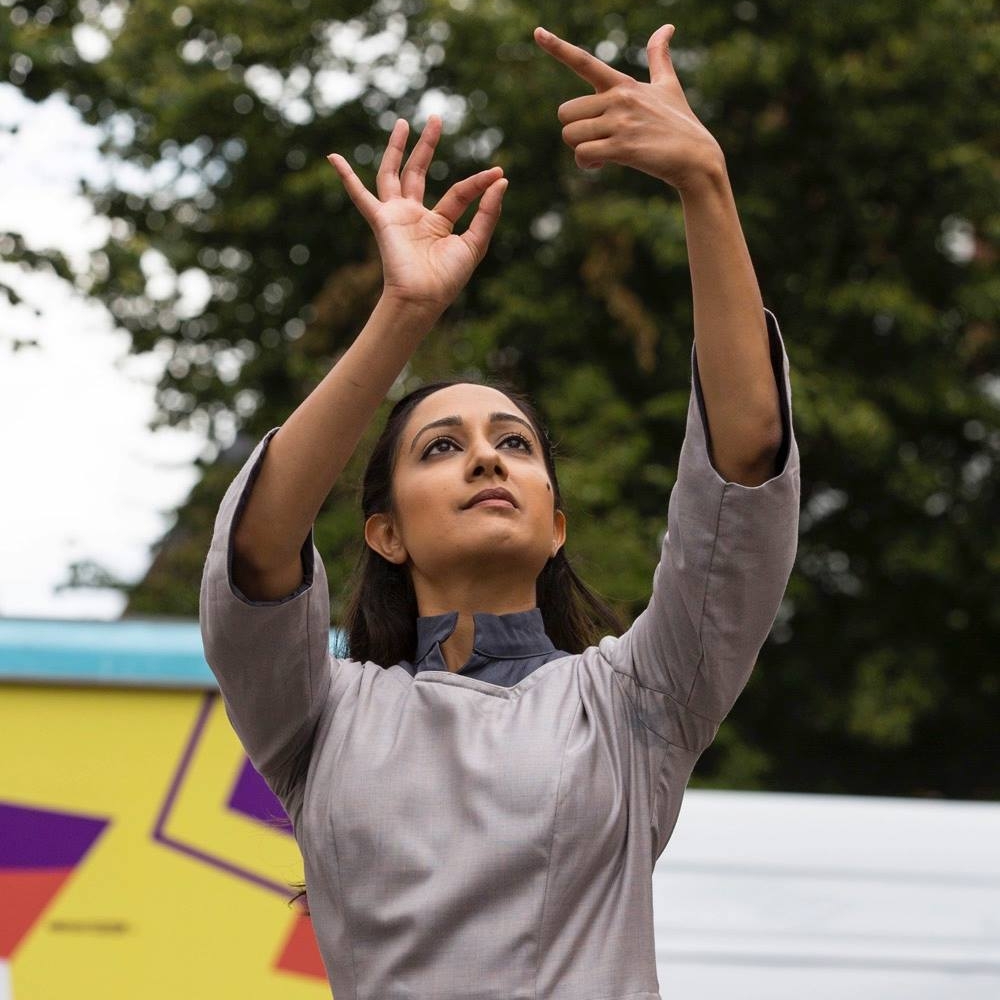Archita Kumar | Working in Lockdown

Our Learning and Participation artists have shown sheer dedication and an unimaginable amount of flexibility in supporting us to continue taking dance to older people and young children with autism, even during the lockdown. We can’t thank them enough!
We commissioned the Dance Well artists to develop and produce bespoke digital dance activities for their individual participant groups, as well as devising professional development opportunities for them to enhance both their practice and the programme itself. Through a combination of creating, reading, discussing, planning and online learning, we’ve tried to ensure that when our classes start again, in whatever the ‘new normal’ looks like, we’re ready to inspire even more older people to Dance Well.
We asked our Dance Well artists to reflect on their experiences of working differently during lockdown. Below you can read how Hiten has taken on these challenges. The other artists’ blog posts can be found here.
For me, lockdown has been a great opportunity to think about and discuss what exactly we are delivering through Dance Well and why. Creating the Dance Well digital films was a new experience for me. In a face-to-face setting, participants contribute to the direction in which an activity can go and this can bring some spontaneous magical moments. With a pre-recorded video I have to imagine how the participants may be receiving the infor-mation and hope that it somehow translates!
Initially I worried a lot about whether I would be able to effectively engage the participants, more so since the group that I work with, older people living with dementia, require a lot of one-on-one interaction. I needed to alter my mindset so that instead of trying to recreate every aspect of face-to-face teaching, my presence on screen was more about helping participants to stay connected with me. That allowed me to stop worrying about elements that are not in my control. Another aspect with pre-recorded videos is being able to let go of the need for perfection, or else you will be recording the same thing forever!
“During the Akademi book club, reading ‘The Body Keeps the Score’, that discussed the role of music, dance, theatre and yoga in the treatment of trauma, was particularly insightful and reinforced the value in what we as artists do in the Dance Well setting.”
Before and during lockdown, Akademi created a learning resource, detailing artefacts from Akademi’s first 40 years. The Heritage resource was a great way to connect and bring in as-pects of Akademi’s other work, into the learning and participation setting. It definitely sparked some great ideas for activities. Due to the nature of the group I work with I was limited as to what would actually work for them in a practical setting. Fortunately, I was able to slot in a lot of my existing tried-and-tested activities into the heritage themes.
We had team teas, which was such a great idea for all of us to stay connected. With so much of our work being in isolation it was really refreshing and something I looked forward to. To be able to informally talk about the assignments we were working on, and discuss whatever challenges we were facing, really helped me to feel connected with other artists doing similar work and to feel part of a community.
In one of these sessions we discussed a few chapters from ‘The Body Keeps the Score’ which we had been assigned to read. The chapters that discussed the role of music, dance, theatre and yoga in the treatment of trauma, were particularly insightful and reinforced the value in what we as artists do in the Dance Well setting. Having somebody from the medical community explain how and why these art forms work, for me, validated the importance of Dance Well. It reinforced that Indian dance, especially when used in a community/clinical setting, has a lot more to it than simply being something different, fun and colourful.
I really enjoyed sharing my practice working within a dementia setting, with trainee artists. I hadn’t realised how much I had learned by being ‘on the job’ until I actually spoke about my experience with trainees and listened to their questions and concerns. The biggest learning for me was that it is ok, and actually good sometimes, to not have all the answers.
“I hadn’t realised how much I had learned by being ‘on the job’ until I actually spoke about my experience with trainees and listened to their questions and concerns. The biggest learning for me was that it is ok, and actually good sometimes, to not have all the answers.”
If these blogs have piqued your interest, then you can learn more about…
… our Dance Well programme
… the Dance Well digital resources
… The Body Keeps The Score, by Bessel van der Kolk
… the UCL Future Learn Dementia and The Arts online course